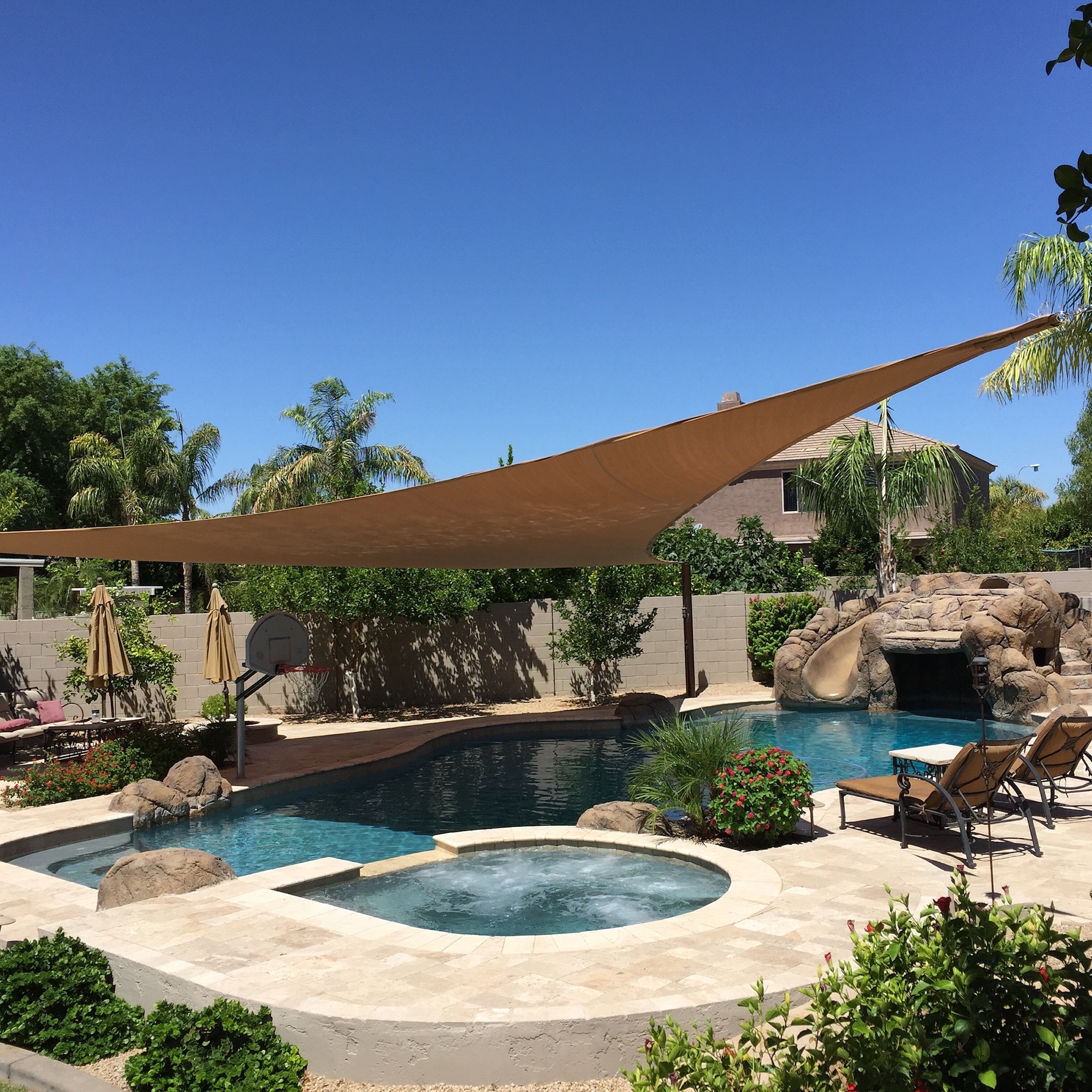What Does It Cost to Own and Maintain a Pool in Phoenix?
What is the cost of owning a swimming pool beyond the initial installation? As with any major investment, there is the upfront cost and then there are the upkeep, maintenance, and repair costs associated with ownership. You might call these “lifecycle costs.” A swimming pool, like most things, will not last forever. But if you maintain your pool, keep the water chemistry balanced, and do some routine preventative upkeep, your swimming pool will provide years of trouble-free fun, enjoyment, and memories.

What Are the Long-Term Costs of Owning a Pool?
Working with professional pool builders in Phoenix, here is what it costs to maintain an existing pool. First, nearly every pool is different. Some pools are tunable, meaning they can be adjusted to find each pool’s sweet spot, that perfect combination of good flow, little restriction, quiet pump performance, and low energy consumption. If the builder constructed it without the necessary adjustment capabilities, you have fewer choices.
Sample Costs
Here are some ballpark, sample costs associated with maintaining an existing pool. Note that your pool maintenance costs may differ from those presented here as examples. The size of the pool, the equipment used, your particular water and electricity rates, as well as other factors will determine your actual cost of pool ownership. That said, the following breakdown and suggestions will hopefully give you an idea of how to calculate costs and possibly help you save some money.
- Here are some estimates:
- Energy usage with a standard 1.5 or 2 horsepower motor can be just under $100 a month. Many older pool pumps are oversized for the pool and draw a lot of energy. This is prevalent in old pools where the pumps were replaced with the mentality that bigger must be better. “Not true in this cases”.
- Chemical usage could cost from $20 to $50 a month.
- As for water usage, the average pool holds 12,000-15,000 gallons. Every pool in the desert without a pool cover has an evaporation rate of 5 feet a year. For most play pools, it means that entire volume of water is lost through evaporation. Of the 350,000 or so pools currently constructed in Phoenix, an estimated 20 percent of them may be leaking, which amounts to the loss of a volume equal to the water in 60,000 pools. What’s more, if you have a filter that requires backwashing, you are literally “sending thousands of gallons of water down the drain,” he says. “If every pool had a cartridge-style filter, we could save 1.5 billion gallons of water alone in Arizona. That is 4,603 acre-feet of valuable water”. Your water bill will depend, therefore, on how efficiently you use water in your pool, coupled with the water
A pool service company will charge anywhere from $50 to several hundred dollars a month to care for your pool. The average is probably about $100,. Make sure you know whether the charge includes all the chemicals. Most people shop these guys for the price, which is not always the best method. Chuck in a Truck will always be cheaper than an established full-service company. The bar to get into this business is very low, as can be verified by the number of individuals coming into the industry and going out of business year after year. If the deal seems too good to be true, it probably is.
- Anyone should be able to find information about specific pool service companies from the Central Arizona Better Business Bureau. Search for accredited “Swimming Pool Service and Repair” companies. There, look for companies in your city or zip code, see ratings and what kind of complaints might have been filed against companies, and find out how long companies have been in business.
- As for the cost of heating a pool, it is difficult to estimate because there are so many variables. In the Phoenix area, the swim season is five or six months for adults, and possibly longer for kids. The options for heating include gas (natural and propane), electric heaters or heat pumps, solar, and other alternatives. Pool covers are great for extending the season without a heater, and they save on chemicals, evaporation, and cleaning. You’ll use far less energy if the pool is not exposed to sand, grit, and dust. “Heating a full-size swimming pool all the time is out of reach for many of us, since that could cost from $300–$400 a month to more than $1,000 a month depending on size and features.
Rough Estimate for Total Upkeep Costs per Month
The total monthly ownership costs of a swimming pool are $100 or more every month. Still, “that’s not for a backyard recreation facility that’s available 24/7, 365 days a year.” If you are building a new pool or renovating an existing pool, you have an opportunity to minimize your costs substantially by installing cost-saving equipment, saving energy, and adopting cost-saving practices from the get-go.